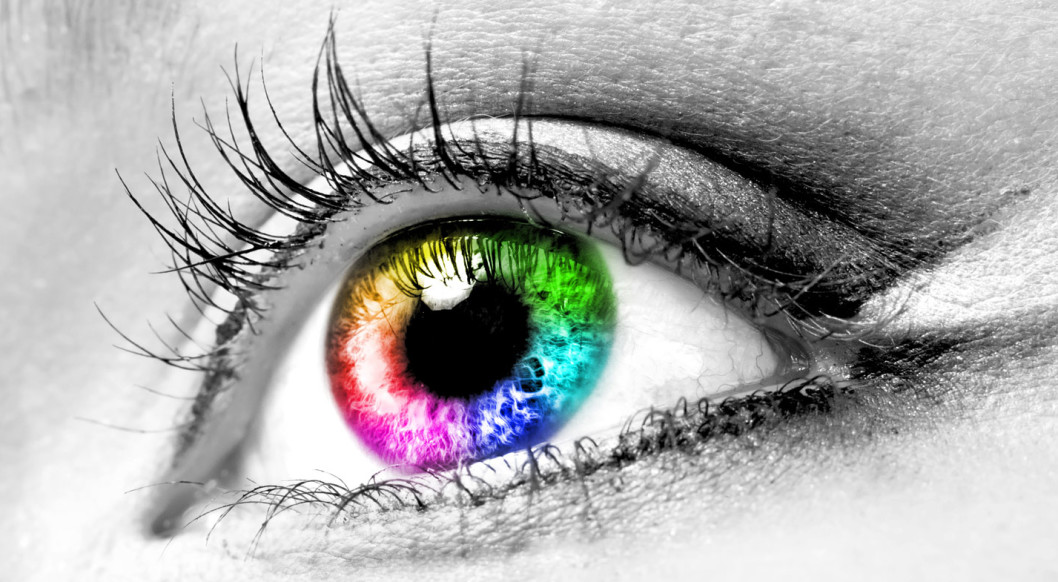
Hate Making Eye Contact? Here’s 5 Quick Tips
In a famous study, men were asked to rate the attractiveness of two sets of women in photos. The second set of photos were identical to the first – except for one crucial difference:
The eyes of women the second set of photos were dilated to around twice the size (using Photoshop).
When asked, up to 80% of the men said the women with dilated pupils were more attractive. But even more interestingly, they didn’t seem to know why.
If questioned about how the photos differ, most of the men said the lips, skin or hair texture. They were completely unaware that they were attracted to the dilated eyes.
This study highlights the importance of eyes in social interactions. We use eye contact to judge whether someone is confrontational, curious, bored or even aroused – even if we aren’t aware we’re doing it.
But if you have social anxiety, eye contact can seem like just another thing to worry about
Instead of being natural, eye contact can feel like someone is shining a light directly into your soul…laying bare your deepest fears and insecurities. And this is a socially anxious person’s worst nightmare.
Even so, you probably know eye contact is important, so you try to do it anyway…
But then you start to question whether you’re staring too long.
“Do they think I’m creepy? Should I look away or will that mean I’m not interested? Why aren’t there any rules for eye contact?!”
Fortunately, there are rules
And once you understand them, eye contact becomes much less of a guessing game. You’ll probably still find it difficult and uncomfortable…but at least you won’t be worrying about whether you’re doing the “right” thing.
Why make the effort though? Well, people who seek out eye contact are seen as more “earnest and believable.”
Not only that, but looking down or avoiding eye contact is a sign of deference. It’s like a flashing sign above your head that says “this person has low confidence!”
Fortunately it’s easier than you think to confidently meet someone’s gaze – even if you’re feeling anxious on the inside. Here’s how to do it.
5 Quick Tips For Making Eye Contact
- If you are talking, hold eye contact for around 3-6 seconds. Then break it by looking up or to the side so you’re not staring. By looking to the side instead of down, it looks like you’re thinking what to say next.
- If the other person is talking, alternate between looking at their eyes and mouth. Again, this prevents staring and shows you’re interested. I recommend switching between the mouth and eyes every 4-5 seconds – but you don’t have to stick to this exactly.
- When you’re talking in a group, don’t focus on one person. Instead, make eye contact with everyone so that they feel included.
- A good way to practice eye contact is with people you won’t see again. Cashiers, bank tellers or even strangers on the street can be great for practice. A small smile can go a long way to making eye contact seem friendly.
- If you find making direct eye contact too difficult, you can focus near their eyes instead. They won’t be able to tell and it may feel more comfortable.
Simple, right? Yet these few tips can make a big difference to how you feel and how other people see you.
There’s a problem though…
Isn’t “learning” to control your eyes fake or manipulative?
It’s a good point. But the more science learns about the brain, the more we realise that communication between your actions and brain isn’t a one way street.
In other words, your actions affect how you think. Your brain then tries to justify your actions by coming up with a reason why you’re doing it (if you want to learn more about this I highly recommend the book Incognito: The Hidden Lives of the Brain).
For example, if you smile your brain thinks there must be a reason why you’re happy so it makes you happier. If you adopt a strong posture, your brain thinks there must be a reason to feel more confident so it makes you more confident.
And the same effect works with eye contact
If you always look down and avoid eye contact, your brain reasons you must be deferential to the other person.
It reconciles this by making you feel that way. It becomes very hard to change your limiting beliefs when your actions are signalling they are correct. It’s like trying to open a door without unlocking it first.
However, when you make eye contact in a friendly, engaging way, it shows your brain that you’re an equal. Your confidence and feeling of self-esteem will grow at the same time.
I’m not saying learning to make eye contact is easy though. It’s hard at first – but it gets easier. Considering how important eyes are to our social interactions, any effort you make to improve your eye contact is going to pay off time and again.
The good news is that, unlike the researchers I mentioned at the start of the article, you can’t physically control your eye’s dilation. So that’s one less thing to worry about!
